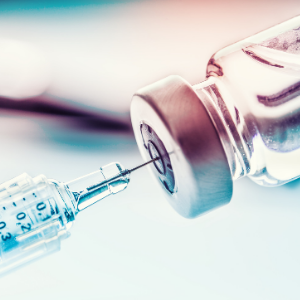Just as what seemed to be a never-ending year was coming to a close, science stepped up to make history. On December 11, 2020, thanks to Operation Warp Speed, the U.S. Food and Drug Administration (FDA) granted emergency use authorization (EUA) to enable distribution to begin for the first COVID-19 vaccine from Pfizer/BioNtech. Then on December 18, 2020, the FDA administered another EUA for the second COVID-19 vaccine from Moderna.
Community Health Centers Administering COVID-19 Vaccines
The Health Resources and Services Administration (HRSA) has collected data since January 1, 2020 and is now surveying health centers weekly to track their COVID-19 response. From these surveys, the data shows over seven million health center patients have been tested for COVID-19 since April 3rd and of those, about 13% tested positive. We are now able to see how crucial the role Community Health Centers (CHCs) play in the fight against the virus.
Moving forward, President Biden released a comprehensive plan outlining his administration’s goals to fight the COVID-19 Pandemic that includes putting CHCs at the forefront of vaccine administration. “Within the first month of our Administration, we are going to deploy mobile clinics, moving from community to community, that will partner with Community Health Centers and local primary care doctors to offer vaccines to hard-hit and hard-to-reach communities,” said Biden.
In the next section, we will shed light on some common COVID-19 myths in regards to the vaccines, their safety, and effectiveness.
COVID-19 Vaccine Myths vs. Facts
.png?width=509&name=COVID-19%20Vaccine%20(1).png)
Myth: COVID-19 vaccines are not safe.
Fact: COVID-19 vaccines are safe and effective.
Safety is the top priority of the U.S. vaccine safety development and approval process. Evidence has found that the first two vaccines to be granted FDA emergency use authorization had high effective rates in phase 3 clinical trials with more than 70,000 participants, Pfizer BioNTech vaccine was 95% effective and the Moderna vaccine was 94% effective. The technology used in mRNA vaccines like the Pfizer BioNTech and Moderna vaccines has been used and studied for decades. This known fact may help ease yours and your patient’s’ doubts about vaccine development.
Myth: You can get COVID-19 from the vaccine.
Fact: COVID-19 vaccines will not give you COVID-19.
Neither of the two vaccines currently being administered in the United States use the live virus that causes COVID-19. The vaccine aims to teach the body’s immune system how to recognize and fight the virus that causes COVID-19. For example, the first time a person is infected with the virus that causes COVID-19, it may take several days or weeks for the body to make and use the tools necessary in our bodies to recover from the infection. After the infection, the person’s immune system recalls what it learned and how to protect the body from another attack. After taking the vaccine, some may experience side effects, such as fatigue, headache, injection sight soreness, and muscle or joint pain. Learn more on how the vaccine works.
Myth: If I have recovered from COVID-19, I do not need to get a vaccine.
Fact: People who have recovered from COVID-19 may still benefit from receiving the vaccine.
Experts are still unaware of how long anyone is protected from contracting the COVID-19 infection again after initial recovery from the virus. There are serious health risks associated with COVID-19 and reinfection is possible, so it is advised to get the vaccine even though they had the infection before. The natural immunity one gains from having the virus previously varies from person to person. Both the natural immunity and vaccine immunity are important aspects in learning more about COVID-19 and the Centers for Disease Control (CDC) will inform the public of new evidence as it becomes available.
Myth: The severity of COVID-19 is different from person to person, so I do not need to get a vaccine.
Fact: The severity of COVID-19 symptoms varies widely and getting vaccinated can help prevent infection with COVID-19.
There is no way to know how the virus will affect you, so getting the vaccine will help protect you by allowing your body to create an antibody response without experience. Also, if you get COVID-19, you may spread the disease to friends, family, and others around you while you are sick.
Myth: Once a person gets a vaccine, they can stop wearing a mask.
Fact: Continue to wear a mask and practice social distancing even after you get a vaccine.
The vaccine will help protect you from getting the virus from someone else, though, there is not enough data yet to conclude whether you could carry the virus or spread it to others.
Myth: It only takes one dose of the vaccine to start building protection.
Fact: All but one vaccine in the United States use two doses/shots to get the most protection.
There is only one vaccine in Phase 3 clinical trials in the United States that only requires a single shot. However, it is not currently approved or being administered to the public.
Myth: To reach herd immunity, 70-80% of the population will need to be vaccinated.
Fact: Experts do not know what percentage of the people will need to be vaccinated to achieve herd immunity to COVID-19.
CDC and other experts are studying herd immunity for COVID-19 and will provide additional information once available.
Resources:
National Strategy for the COVID-19 Response and Pandemic Preparedness Plan
National Association of Community Health Centers
